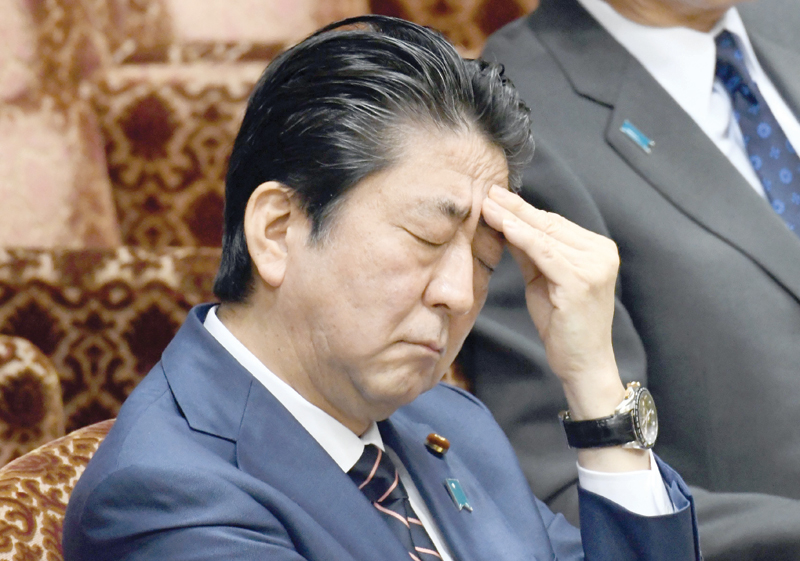

TOKYO: Prime Minister Shinzo Abe wants to repeal a Japanese law requiring broadcasters to show impartiality, a step critics fear will lead to sensational reporting and polarise views, just as a similar move has been blamed for doing in the United States.
Abe’s government has drafted changes to Japan’s broadcast law and plans to include them in reform proposals as early as May, laying the groundwork for future legislation, three government sources said.
The sources, who asked for anonymity due to the sensitivity of the matter, said the draft includes repealing the law’s article 4, which requires licence holders to show contrasting political views and is considered Japan’s version of the US Fairness Doctrine.
The US Federal Communications Commission decided to repeal the doctrine in 1987 after criticism that it restricted broadcasters’ freedom. The move, finalised in 2011, is widely credited with helping give rise to politically charged radio talk shows and news programmes.
“Without having these safeguards, media outlets become more susceptible to market forces,” said Victor Pickard, associate professor of communication at the Annenberg School for Communication at the University of Pennsylvania. “The US could serve as a cautionary tale.”
Abe has said he wants to overhaul the broadcast law to put traditional television channels on equal footing with online media, which are not restricted by article 4. The law does not apply to print media.
In a parliament session in February, he cited his appearance on AbemaTV, a livestreaming service operated by Internet advertising agency CyberAgent and TV Asahi that despite its name has no financial or other links to Abe. During his appearance, he was allowed to air his views without the need for contrasting views to be presented.
“As the division between traditional and digital media become meaningless, we should make for bold revisions to broadcast businesses to make the best use of airwaves, which are a public asset,” Abe said.
But critics see it as a more sinister move, saying Abe wants to stack airwaves with pro-government messaging to bolster his popularity and push through a controversial revision of Japan’s pacifist constitution. He is facing pressure over a suspected cover-up of a cronyism scandal, which could dash his hopes of winning a third three-year term in a leadership election in September.
“What Prime Minister Abe wants to do is to advertise his views,” said lawmaker Soichiro Okuno from the opposition Party of Hope. — Reuters
Oman Observer is now on the WhatsApp channel. Click here



